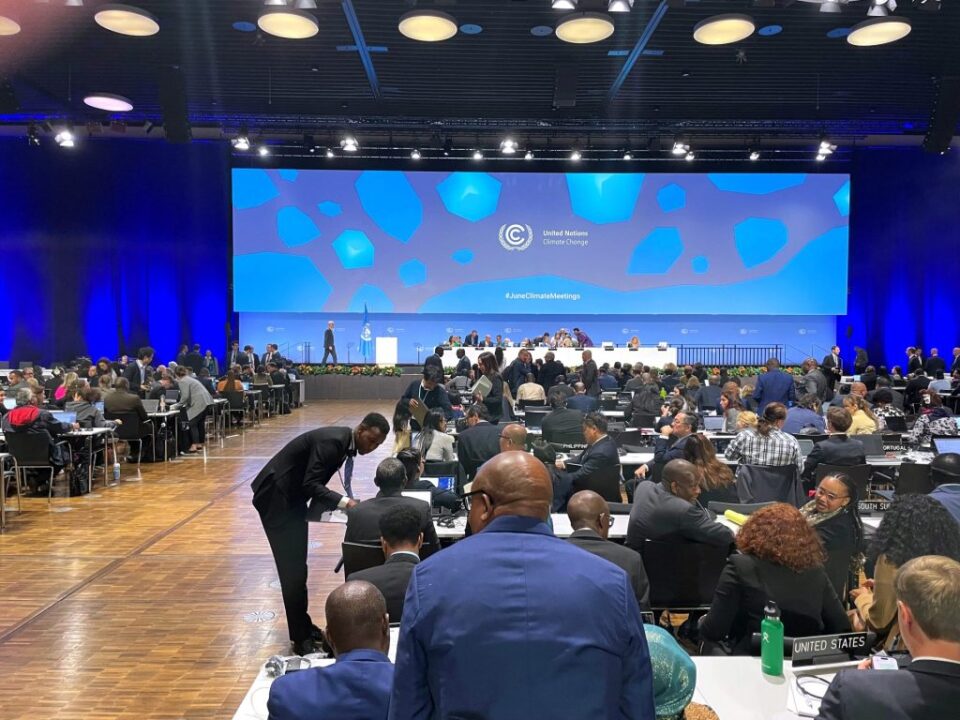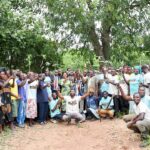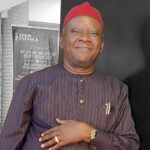By Chuks Oyema-Aziken
As the 2024 Bonn Climate Change Conference, also known as the 60th Sessions of the UN Climate Change Subsidiary Bodies (SB60) enters the second week, experts have called on developed ones to come up with clear proposals and figures to support climate finance in developing countries.
In 2009, at COP15 in Copenhagen, developed countries committed to a goal of mobilising USD 100 billion per year by 2020 for climate action in developing countries. At COP21 in Paris, countries agreed to set a new collective quantified goal before 2025, taking into account the needs and priorities of developing countries.
The meeting in Bonn Germany prepares ground for technical discussions that lay the roadmap to what will be agreed later this year, there is high expectation that this preparatory work sets a clear ambition for a realistic finance target that is commensurate with the scale of needs and speed to deal with the climate crisis.
For developing countries, this means provision of finance that enables them to deal with the frequency of extreme weather events that leave the most vulnerable bearing the brunt of climate impacts
For developing countries, this means a quantum figure in the trillions, with some like the Africa Group citing a figure of not less than $1.3 trillion per year by 2030. More than the amount in quantitative terms, countries are clear on the need for the financing to be quality. This means that the agreed climate financing will not be given in the form of loans as has happened in the past, should not be double counted and hence should be additional to development finance. Climate finance that has been given in the form of loans has exacerbated the debt burden of developing countries. A study by ONE Campaign shows that due to debt service repayments, financial outflows from African countries have surpassed inflows that include official development assistance.
Chair, African Group of Negotiators, Ali Mohamed Chair, said SB60 is an opportunity to rebuild trust in the principle of common but differentiated responsibilities and respective capabilities.
“That trust can only be rebuilt if we come out of Bonn with a quantum that adequately covers the needs of the continent. The figure Africa is asking for from here as we head into COP29 is $1.3 trillion per year by 2030.
Evans Njewa, Chair of the Least Developed Countries Group, expects lot of negotiations texts to be concluded in second week.
“We hope to agree that developed countries will provide climate financing that is based on science, is accessible and scaled up to meet the needs of developing countries. It is my hope that we will agree on shared commonalities that will produce a draft text that will give us positive decisions in Baku.
Sven Harmeling, Head of Climate, Climate Action Network, Europe said the group analysed European Union climate finance and noted that while there has been an increase in contributions in recent years, the scale definitely doesn’t match what is required.
“This year and in future climate financing debates, the EU must significantly increase the quality of financing and move away from non-grant instruments like loans, which have been 50% and step up in grants as these are particularly important for vulnerable countries to address the climate crisis.
According to Imane Saidi, Diplomacy and cooperation researcher, Imal Initiative for Climate & Development.
“The NCQG consultations have been held hostage by debates over the reform of the contributor base and the relevance of Article 2.1c of the Paris Agreement. These issues are not only outside the mandate but also stall substantial discussions on defining the structure, timeframe, and quantum of the goal. A progressive NCQG text for Africa and other developing countries should move beyond these tactics and conditionalities set by developed country Parties, to avoid their historical responsibility and focus on the core mandate. It should emphasise genuine accountability from developed countries and prioritise the real needs of the developing world.
Stela Herschmann, Climate Policy Specialist at Observatório do Clima, Brazil, in her comments noted that countries, especially the developed ones, need to stop dodging and come up with clear proposals and figures, or we’ll hardly make any concrete progress at this meeting, with worrying consequences for COP this year and our way to Belém.
Similarly, Eva Peace, Loss and Damage Youth Coalition said the new climate finance goal is an opportunity to learn from the lessons of the $100 billion goal and design the NCGQ to meet the needs and priorities of developing countries.
“The NCQG should include sub-goals on loss and damage, adaptation, and mitigation and provide public grant-based finance. At COP28 we got the establishment of a loss and damage fund which unlocked another phase of addressing the climate change shocks in Africa, and strengthening recovery for our communities. However that is not enough, as we get into this second week of negotiations, we hope developed countries agree to take responsibility in the mobilisation and provision of climate finance by prioritising the inclusion of loss and damage.”



